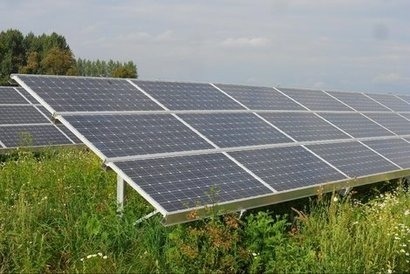
Speaking in Parliament the Chancellor reconfirmed the British Government’s commitment to tax breaks for oil and gas firms, to drive investment in those areas. However, there was no mention of removing the proposed business rates increase for commercial solar installations. Only modest interventions are needed, according to the Solar Trade Association (STA), including dropping the business rates hike, to unlock £1billion of investment in solar over this Parliament.
“We welcome the additional funding for infrastructure & electric vehicles - a “smart” energy system will deliver enormous savings to business and consumers” said Paul Barwell, STA CEO. “It is also good news that there is no cut to the Carbon Price support, and we look forward to working with the Government over their emissions reduction plan and the future of the Levy Control Framework. However proposed business rate rises risk undermining an industry that is already adjusting to a low-support framework, and will make many systems uneconomical.”
Leonie Greene, STA Head of External Affairs, added that only the week after the UK ratified the Paris Agreement, the Chancellor made no mention of climate change. It is deeply frustrating at this point in time that supporters of clean energy have to battle against a tax regime that is rewarding investors in fossil fuels over solar energy. Very modest intervention is needed to unlock a billion of investment in solar over this Parliament. The UK economy, as well as the climate, urgently needs this investment.
The Solar Trade Association (STA) has been urging the Government to drop the solar tax hike for months. The new business rates, due to be implemented in April 2017, will mean that companies and public sector buildings that supply themselves with solar power will see business rates on those installations increase six to eight fold. This rate rise will not affect installations deemed “mainly export” where over half the energy is sold to a third party. Bizarrely this will mean companies with identical solar schemes could face an 11-fold difference in business rates payable on solar next year depending on ownership structure.
Elsewhere, Britain’s GMB Union described the Autumn Statement as “ridiculous” because of its £14 billion ‘smart meter black hole’. The union stated that in his ‘mini-budget’, Chancellor Phillip Hammond promised huge investment in infrastructure – but made no mention of the vast sums required to install the 53 million new meters across the country. The project will see new smart meters installed in 30million homes and businesses at an estimated cost of £215 a go. The initial price tag for the project is £11billion, but with massive staff shortages the cost of the project looks underfunded in the lead up to the target date of 2020. The cost is nearly 30 per cent of the £55.7 billion needed for the High Speed 2 (HS2) rail project.
“It is ridiculous that the autumn statement did not even mention the biggest infrastructure the UK has ever had” said Justin Bowden, GMB National Secretary. “Trying to install 53 million smart meters by 2020 is cloud cuckoo land - unless there is a massive government led programme starting now to ensure adequate staff to do the work, alongside proper funding. Every electricity and gas customer in the country will want to know whether by leaving smart metering out of the autumn statement, the Chancellor has a cunning plan to try and sneak the costs onto them.”
In essence, the Autumn Statement was, in the main, a recipe for ‘business as usual’ rather than putting the UK back on track to meet its emissions reduction targets. To meet these targets, and the newly ratified Paris Agreement, the Government will have to use all levers available to reduce our total emissions and limit climate change. This Chancellor’s first financial statement marks a missed opportunity to get a jump start on these goals.
For additional information:

